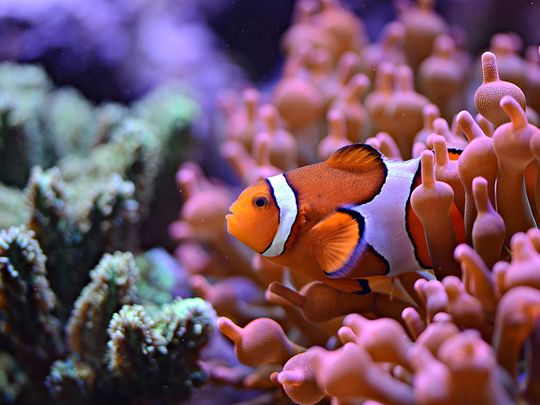
Jordan is a country known for its ancient rock-cut city of Petra, and for the salt lake called Dead Sea that lies to its west. But over the past decade, it also became a forerunner in coral reef preservation through an ingenious idea.
Click start to play today’s Spell It, where you can find the word “reefs”.
Coral reefs are scattered along the Gulf of Aqaba, a popular area for tourists – specifically scuba divers – who love to explore the area’s reefs and marine life. The region is home to 127 species of Aqaba’s delicate corals, some of which are 6,000 years old, according to an April 2018 report in the National Geographic.
But with growing urban development along the coast of the city, some changes had to be made. The nation wanted to meet tourist demand, but not at the cost of destroying the area’s marine life. So, the Aqaba Special Economic Zone Authority worked with the United Nations Development Program and came up with a plan – they would relocate healthy coral reefs to damaged reef areas in an effort to repair them and aid coral growth. With healthier reefs, underwater life would flourish, generating tourism in the area, and bringing in more money to take care of reefs – a self-supporting cycle.
In 2012, corals from the southern part of the coast and the city’s Al Derreh area were placed in baskets by divers, and slowly transported almost 3.2km north, while fully submerged underwater. They were then planted in damaged reef areas and a cave site. Smaller coral reef colonies were moved to a nursery site.
The entire relocation process was closely monitored. Four years later, the replanted coral had steadily grown up to five centimetres per year. The coral had a survival rate of 85 per cent, compared to the average of 60 per cent.
The coral itself may be a reason for the successful transplantation. Many of the coral species found in the Gulf of Aqaba are resilient to high temperatures, which means they don’t bleach as fast as reefs in other parts of the world. And if they survive local pollution, the corals may even be used, one day, to re-seed damaged or dying reefs in other areas around the globe.
With the success of its reef relocation, Jordan opened the Aqaba Marine Park to the public in 2018 – a diving site close to the new reefs. Other dive sites are also being opened to reduce divers’ impact on reef health. In November 2017, a decommissioned Royal Jordanian Air Force plane was sunk to create an interesting new dive site that would partially take the burden of tourism off the reefs.
Do you think reef relocation might work in other countries? Play today’s Spell It and tell us at games@gulfnews.com.






